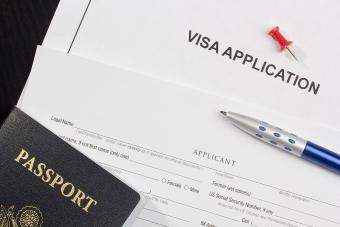Visa Policy
Recent Activity
In a personal tribute published in the Migration Information Source, MPI's online journal, MPI President Emeritus Demetrios G. Papademetriou reflects on the life and career of Graeme Hugo, a world-renowned scholar and Director of the Australian Population and Migration Research Centre at the University of Adelaide, who died in January 2015.
In 2014 governments in Europe, North America, and Australia reacted to significant mixed flows of humanitarian, economic, and family-stream migrants with a range of new policies. These came as some migrants presented themselves to authorities for processing rather than trying to evade U.S. or European border controls, with the knowledge that backlogs and little political will for the removal of vulnerable populations might allow them to stay for extended periods.
Fears regarding the spread of the deadly Ebola virus following an outbreak in Guinea, Liberia, and Sierra Leone prompted governments around the world to regulate travel from and within West Africa. Travel bans, airport health screenings, closed borders, and traveler quarantines were among the policies implemented. International organizations argue such restrictions drive possibly symptomatic travelers to illegally bypass borders and encourage dishonesty in the exit screening process.
Increasing numbers of Westerners heading to Syria and Iraq to join jihadist organizations like ISIS have governments concerned about possible attacks at home by returning fighters. Several thousand fighters from Europe and other Western countries are believed among the foreign nationals involved in conflicts in Syria and Iraq. Lawmakers scrambled in 2014 to respond with new policies, including seizing passports, stripping citizenship, and criminalizing travel to "no go" zones.
Mass cases of exploitation and abuse of migrant workers have drawn international scrutiny and criticism of the kafala system in Gulf Cooperation Council countries and private recruitment practices in Southeast Asia. With Qatar under scrutiny amid a frenzied construction boom in advance of the 2022 World Cup, international organizations and human-rights groups in 2014 stepped up their campaign for worker protection reforms.
2014 marked the quiet demise worldwide of the traditional points system for selecting skilled immigrants. Canada, which in 1969 invented the points system, in 2015 will join other countries in adopting a hybrid system that places more emphasis on a demand-driven system. This article examines how following the economic crisis, governments have revamped, hybridized, or ended such programs.










The Field of Migration Studies Loses a Giant: Graeme Hugo